
Self
An architect whose iconic buildings defined a newly independent Cambodia struggles to come to terms with the reckless development that threatens his legacy.

Self
A retrospective look at the career of Paul Robeson and his legacy as both an American and a citizen of the world.

Self
A documentary on the career of William Greaves, featuring Greaves, his wife and co-producer Louise Archambault, actor Ruby Dee, filmmaker St. Clair Bourne, and film scholar Scott MacDonald. Released within Criterion's Symbiopsychotaxiplasm set.

Producer
A movie about making movies about making movies. In 1968, William Greaves shot several pairs of actors in a scene in which a woman confronts her husband and ends their relationship. In "Take 2 1/2," Greaves starts with 1968 takes of one of these pairs of actors plus footage of the crew discussing the film's progress. Then, 35 years later, Greaves brings back to Central Park those actors and some of the original crew (plus others) to film a reunion of the characters Alice and Freddie. We watch scenes of these characters and discussions among the actors and crew. Greaves explores and dramatizes the dialectic in the creative process.

Writer
A movie about making movies about making movies. In 1968, William Greaves shot several pairs of actors in a scene in which a woman confronts her husband and ends their relationship. In "Take 2 1/2," Greaves starts with 1968 takes of one of these pairs of actors plus footage of the crew discussing the film's progress. Then, 35 years later, Greaves brings back to Central Park those actors and some of the original crew (plus others) to film a reunion of the characters Alice and Freddie. We watch scenes of these characters and discussions among the actors and crew. Greaves explores and dramatizes the dialectic in the creative process.

Himself
A movie about making movies about making movies. In 1968, William Greaves shot several pairs of actors in a scene in which a woman confronts her husband and ends their relationship. In "Take 2 1/2," Greaves starts with 1968 takes of one of these pairs of actors plus footage of the crew discussing the film's progress. Then, 35 years later, Greaves brings back to Central Park those actors and some of the original crew (plus others) to film a reunion of the characters Alice and Freddie. We watch scenes of these characters and discussions among the actors and crew. Greaves explores and dramatizes the dialectic in the creative process.

Director
A movie about making movies about making movies. In 1968, William Greaves shot several pairs of actors in a scene in which a woman confronts her husband and ends their relationship. In "Take 2 1/2," Greaves starts with 1968 takes of one of these pairs of actors plus footage of the crew discussing the film's progress. Then, 35 years later, Greaves brings back to Central Park those actors and some of the original crew (plus others) to film a reunion of the characters Alice and Freddie. We watch scenes of these characters and discussions among the actors and crew. Greaves explores and dramatizes the dialectic in the creative process.

Director
Few remember the name, much less the historical achievements, of Dr. Ralph Johnson Bunche. Yet, this African American mediator and United Nations diplomat was the first person of color anywhere in the world to be awarded the Nobel Prize for Peace.

Writer
Ida B. Wells: A Passion for Justice documents the dramatic life and turbulent times of the pioneering African American journalist, activist, suffragist and anti-lynching crusader of the post-Reconstruction period. Nobel Prize-winning author Toni Morrison reads selections from Wells' memoirs and other writings in this winner of more than 20 film festival awards.

Director
Ida B. Wells: A Passion for Justice documents the dramatic life and turbulent times of the pioneering African American journalist, activist, suffragist and anti-lynching crusader of the post-Reconstruction period. Nobel Prize-winning author Toni Morrison reads selections from Wells' memoirs and other writings in this winner of more than 20 film festival awards.

Host/Narrator
This documentary presents clips from black films from 1929 through 1957.

Director
This documentary presents clips from black films from 1929 through 1957.

Director
The first Black-produced and controlled network television series, BLACK JOURNAL won an Emmy for programming excellence in public affairs. Provides a unique perspective on the late Civil Rights period. The Best of Black Journal consists of five segments from the 1968-70 TV series focusing on African American arts and culture.

Cinematography
The film questions whether the Civil Rights Movement of the 1960s effectively changed the Black community, and American society more widely, and examines the notion of Black power itself. Greaves interviewed major Black leaders, such as Franklin Thomas, Clifton Wharton Jr., Eleanor Holmes Norton, and Lerone Bennett Jr. to present a candid take on issues within the African American community, revealing wider societal problems in America at large.

Writer
The film questions whether the Civil Rights Movement of the 1960s effectively changed the Black community, and American society more widely, and examines the notion of Black power itself. Greaves interviewed major Black leaders, such as Franklin Thomas, Clifton Wharton Jr., Eleanor Holmes Norton, and Lerone Bennett Jr. to present a candid take on issues within the African American community, revealing wider societal problems in America at large.

Narrator/Interviewer
The film questions whether the Civil Rights Movement of the 1960s effectively changed the Black community, and American society more widely, and examines the notion of Black power itself. Greaves interviewed major Black leaders, such as Franklin Thomas, Clifton Wharton Jr., Eleanor Holmes Norton, and Lerone Bennett Jr. to present a candid take on issues within the African American community, revealing wider societal problems in America at large.

Editor
The film questions whether the Civil Rights Movement of the 1960s effectively changed the Black community, and American society more widely, and examines the notion of Black power itself. Greaves interviewed major Black leaders, such as Franklin Thomas, Clifton Wharton Jr., Eleanor Holmes Norton, and Lerone Bennett Jr. to present a candid take on issues within the African American community, revealing wider societal problems in America at large.

Producer
The film questions whether the Civil Rights Movement of the 1960s effectively changed the Black community, and American society more widely, and examines the notion of Black power itself. Greaves interviewed major Black leaders, such as Franklin Thomas, Clifton Wharton Jr., Eleanor Holmes Norton, and Lerone Bennett Jr. to present a candid take on issues within the African American community, revealing wider societal problems in America at large.

Director
The film questions whether the Civil Rights Movement of the 1960s effectively changed the Black community, and American society more widely, and examines the notion of Black power itself. Greaves interviewed major Black leaders, such as Franklin Thomas, Clifton Wharton Jr., Eleanor Holmes Norton, and Lerone Bennett Jr. to present a candid take on issues within the African American community, revealing wider societal problems in America at large.

Editor
This director's cut of the William Greaves' documentary short film dramatizes the life and deeds of the noted abolitionist Frederick Douglass.

Writer
This director's cut of the William Greaves' documentary short film dramatizes the life and deeds of the noted abolitionist Frederick Douglass.

Producer
This director's cut of the William Greaves' documentary short film dramatizes the life and deeds of the noted abolitionist Frederick Douglass.

Director
This director's cut of the William Greaves' documentary short film dramatizes the life and deeds of the noted abolitionist Frederick Douglass.

Screenplay
Frederick Douglass, Fighter for Freedom is a 19-minute documentary on the life and times of Frederick Douglass. Historic photos and documdrama segments cover the live of this great orator, emancipator and statesman. The story is told by a young narrator.

Producer
Frederick Douglass, Fighter for Freedom is a 19-minute documentary on the life and times of Frederick Douglass. Historic photos and documdrama segments cover the live of this great orator, emancipator and statesman. The story is told by a young narrator.

Director
Frederick Douglass, Fighter for Freedom is a 19-minute documentary on the life and times of Frederick Douglass. Historic photos and documdrama segments cover the live of this great orator, emancipator and statesman. The story is told by a young narrator.

Writer
Designed for class instruction and career education, and to prove that space exploration isn’t just for the boys. The film interviews women employed in the space transportation programs of the National Aeronautics and Space Administration (NASA) and shows the variety of positions that they hold as electrical engineers, aerial photography analysts, safety specialists and astronaut mission specialists. It notes how the women obtained their training and qualified for their positions. Astronaut Anna Lee Fisher, Dr. Patricia Cowings, Shirley Chevalier, Sue Norman, Sharon Orkansky, Brenda Willis, and Astronaut Catherine Sullivan are profiled. Narrated by Ricardo Montalban.
Winner of NAACP Image Award For Picture Of The Year

Producer
Designed for class instruction and career education, and to prove that space exploration isn’t just for the boys. The film interviews women employed in the space transportation programs of the National Aeronautics and Space Administration (NASA) and shows the variety of positions that they hold as electrical engineers, aerial photography analysts, safety specialists and astronaut mission specialists. It notes how the women obtained their training and qualified for their positions. Astronaut Anna Lee Fisher, Dr. Patricia Cowings, Shirley Chevalier, Sue Norman, Sharon Orkansky, Brenda Willis, and Astronaut Catherine Sullivan are profiled. Narrated by Ricardo Montalban.
Winner of NAACP Image Award For Picture Of The Year

Director
Designed for class instruction and career education, and to prove that space exploration isn’t just for the boys. The film interviews women employed in the space transportation programs of the National Aeronautics and Space Administration (NASA) and shows the variety of positions that they hold as electrical engineers, aerial photography analysts, safety specialists and astronaut mission specialists. It notes how the women obtained their training and qualified for their positions. Astronaut Anna Lee Fisher, Dr. Patricia Cowings, Shirley Chevalier, Sue Norman, Sharon Orkansky, Brenda Willis, and Astronaut Catherine Sullivan are profiled. Narrated by Ricardo Montalban.
Winner of NAACP Image Award For Picture Of The Year
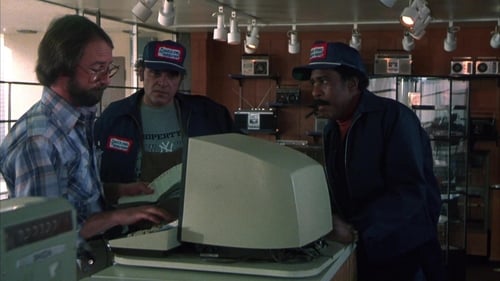
Executive Producer
After ex-con Joe Braxton violates his probation he is given a second chance, all he has to do is drive a group of special kids across the country.

Director
Directed by African American William Greaves and narrated by actor Ricardo Montalban, Where Dreams Come True is a 1979 NASA film highlighting the contributions of women and minorities and encouraging more to consider a career at the agency. The documentary includes interviews with astronaut-scientists Kathryn Sullivan and Ronald McNair, research psychologist Patricia Cowings, engineer Ruben Ramos, and former astronaut and deputy administrator Frederick Gregory. Much of the work depicted in this film relates to the fledgling Space Shuttle program - which was two years away from its first mission.

Director of Photography
An intimate portrait of two inner-city barbershops that provide patrons with more than haircuts.

Editor
An intimate portrait of two inner-city barbershops that provide patrons with more than haircuts.

Writer
An intimate portrait of two inner-city barbershops that provide patrons with more than haircuts.

Producer
An intimate portrait of two inner-city barbershops that provide patrons with more than haircuts.

Director
An intimate portrait of two inner-city barbershops that provide patrons with more than haircuts.

Editor
An American detective investigates the drug trade's influence on violence in Jamaica and corruption among government officials and high-ranking members of the police force.

Writer
An American detective investigates the drug trade's influence on violence in Jamaica and corruption among government officials and high-ranking members of the police force.

Producer
An American detective investigates the drug trade's influence on violence in Jamaica and corruption among government officials and high-ranking members of the police force.

Director
An American detective investigates the drug trade's influence on violence in Jamaica and corruption among government officials and high-ranking members of the police force.

Director
Explores the extraordinary artistic, cultural and political flowering that took place in Harlem during the "Roaring 20s." This vivid portrait of the "Harlem Renaissance" is created entirely with period photographs.

Director
In 1971, maverick filmmaker William Greaves trained his cameras on both Muhammad Ali and his opponent, Joe Frazier, ahead of the “Fight of the Century” at New York’s Madison Square Garden. The epic battle was supposed to be Ali's big comeback following the suspension of his boxing license in 1967. In addition to the media circus surrounding both combatants, Greaves shot the match in its entirety from a dizzying array of camera angles, making the director's cut of The Fight both an invaluable historical document as well as a virtuosic piece of filmmaking

Director
This film explores innovative ways in which "standard English" can be taught to dialect speaking children. Filmed on location in Louisiana at a U.S. Department of Education teacher-training project.

Cinematography
A man returns to his home of Jamaica from journey. Along the way, he meets up with famous reggae bands of the time.

Director
Documentary about the first Ali-Frazier fight.
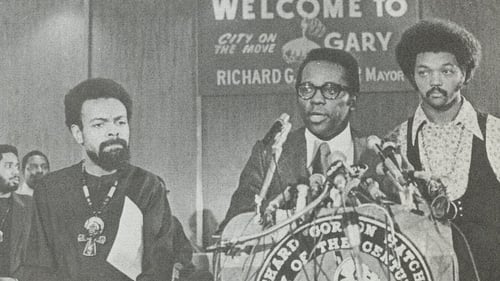
Cinematography
A report on the National Black Political Convention held in Gary, Indiana, in 1972, a historic event that gathered Black voices from across the political spectrum, among them Jesse Jackson, Dick Gregory, Coretta Scott King, Richard Hatcher, Amiri Baraka, Charles Diggs, and H. Carl McCall.

Director
A report on the National Black Political Convention held in Gary, Indiana, in 1972, a historic event that gathered Black voices from across the political spectrum, among them Jesse Jackson, Dick Gregory, Coretta Scott King, Richard Hatcher, Amiri Baraka, Charles Diggs, and H. Carl McCall.

Director
Examines the history and purpose of the "merit system" used by the U.S. Civil Service in hiring and promoting Federal Government workers. Shows how the system impacts jobs and career prospects for women and minorities.

Director
Produced by the Equal Employment Opportunity Commission, this film traces the ongoing struggle for equality by the Spanish-speaking residents of the United States. Through a fictitious scenario and real discussions with a range of individuals, including local business leaders, parents, and student activists, the film explores job discrimination and the resulting hardships within the Hispanic community. Many of the interviews are conducted by actor Anthony Quinn, who relates his own family's struggles as Mexican immigrants in East Los Angeles.

Director
This multi-award winning film uses psychodrama to help bridge the communication gap between a group of the so-called "hard-core unemployed" - largely Black and "underclass" - and the men who hire, train and supervise them - mostly white and middle class.
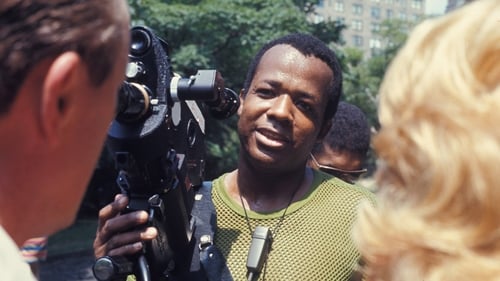
Himself / Director
In Manhattan's Central Park, a film crew directed by William Greaves is shooting a screen test with various pairs of actors. It's a confrontation between a couple: he demands to know what's wrong, she challenges his sexual orientation. Cameras shoot the exchange, and another camera records Greaves and his crew. Sometimes we watch the crew discussing this scene, its language, and the process of making a movie. Is there such a thing as natural language? Are all things related to sex? The camera records distractions - a woman rides horseback past them; a garrulous homeless vet who sleeps in the park chats them up. What's the nature of making a movie?

Producer
In Manhattan's Central Park, a film crew directed by William Greaves is shooting a screen test with various pairs of actors. It's a confrontation between a couple: he demands to know what's wrong, she challenges his sexual orientation. Cameras shoot the exchange, and another camera records Greaves and his crew. Sometimes we watch the crew discussing this scene, its language, and the process of making a movie. Is there such a thing as natural language? Are all things related to sex? The camera records distractions - a woman rides horseback past them; a garrulous homeless vet who sleeps in the park chats them up. What's the nature of making a movie?

Editor
In Manhattan's Central Park, a film crew directed by William Greaves is shooting a screen test with various pairs of actors. It's a confrontation between a couple: he demands to know what's wrong, she challenges his sexual orientation. Cameras shoot the exchange, and another camera records Greaves and his crew. Sometimes we watch the crew discussing this scene, its language, and the process of making a movie. Is there such a thing as natural language? Are all things related to sex? The camera records distractions - a woman rides horseback past them; a garrulous homeless vet who sleeps in the park chats them up. What's the nature of making a movie?

Writer
In Manhattan's Central Park, a film crew directed by William Greaves is shooting a screen test with various pairs of actors. It's a confrontation between a couple: he demands to know what's wrong, she challenges his sexual orientation. Cameras shoot the exchange, and another camera records Greaves and his crew. Sometimes we watch the crew discussing this scene, its language, and the process of making a movie. Is there such a thing as natural language? Are all things related to sex? The camera records distractions - a woman rides horseback past them; a garrulous homeless vet who sleeps in the park chats them up. What's the nature of making a movie?

Director
In Manhattan's Central Park, a film crew directed by William Greaves is shooting a screen test with various pairs of actors. It's a confrontation between a couple: he demands to know what's wrong, she challenges his sexual orientation. Cameras shoot the exchange, and another camera records Greaves and his crew. Sometimes we watch the crew discussing this scene, its language, and the process of making a movie. Is there such a thing as natural language? Are all things related to sex? The camera records distractions - a woman rides horseback past them; a garrulous homeless vet who sleeps in the park chats them up. What's the nature of making a movie?

Producer
A short documentary subject made for National Educational Television's Black Journal television program documenting a political rally in Newark, the 1970 mayoral campaign of Ken Gibson, and an African American voter registration drive with special musical performance by Stevie Wonder.
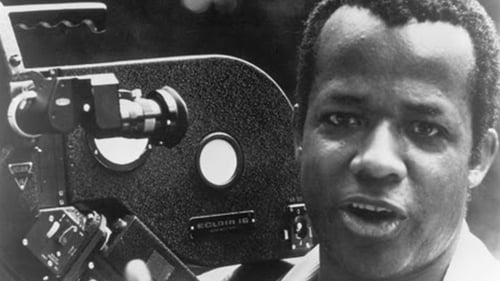
Director
The Black middle class, torn between white goals and Black needs, are examined by producers William Greaves and William Branch in a 90-minute NET Journal documentary.

Editor
Official film of the festival, a gathering that laid crucial groundwork for pan-Africanist thinking. Directed by William Greaves, the prolific African American actor and filmmaker who left the US in the 1950s to train at the more liberal, welcoming National Film Board of Canada.

Narrator
Official film of the festival, a gathering that laid crucial groundwork for pan-Africanist thinking. Directed by William Greaves, the prolific African American actor and filmmaker who left the US in the 1950s to train at the more liberal, welcoming National Film Board of Canada.

Cinematography
Official film of the festival, a gathering that laid crucial groundwork for pan-Africanist thinking. Directed by William Greaves, the prolific African American actor and filmmaker who left the US in the 1950s to train at the more liberal, welcoming National Film Board of Canada.

Writer
Official film of the festival, a gathering that laid crucial groundwork for pan-Africanist thinking. Directed by William Greaves, the prolific African American actor and filmmaker who left the US in the 1950s to train at the more liberal, welcoming National Film Board of Canada.

Director
Official film of the festival, a gathering that laid crucial groundwork for pan-Africanist thinking. Directed by William Greaves, the prolific African American actor and filmmaker who left the US in the 1950s to train at the more liberal, welcoming National Film Board of Canada.

Producer
This film explores freedom of speech in the United States of America

Writer
This film explores freedom of speech in the United States of America

Director
This film explores freedom of speech in the United States of America

Director
Exploring four of the world's major religions: Hinduism, Buddhism, Islam and Christianity.

Editor
This 1959 documentary short is a frank portrait of the daily operations inside the Montreal General Hospital’s emergency ward.

Director
This 1959 documentary short is a frank portrait of the daily operations inside the Montreal General Hospital’s emergency ward.

Director
During the fire season, look-out men keep constant vigilance for the first sign of smoke, scanning the territory for miles around. How they are trained for the work and how their efforts save many valuable stands of timber are illustrated at a fire tower in the Forestry Branch's Petawawa Forest Experiment Station in Ontario.

Writer
During the fire season, look-out men keep constant vigilance for the first sign of smoke, scanning the territory for miles around. How they are trained for the work and how their efforts save many valuable stands of timber are illustrated at a fire tower in the Forestry Branch's Petawawa Forest Experiment Station in Ontario.

Editor
This short documentary offers a look at the life forms on the Queen Elizabeth Islands within the Arctic Circle. Even in this frigid zone of icebergs and glaciers a surprising variety of wildlife and vegetation is seen. Writings from the logbooks of early explorers provide vivid descriptions of scenes as arresting to them in their century as to today's explorer.

Editor
The camera follows the Trans-Canada Highway from east to west, revealing the people, the resources and the geography of Canada. Included are some of the engineering feats accomplished in the building of the highway.

Editor
The Salvation Army in action. Band rehearsals, personal reminiscences of an Army officer, and an unrehearsed "coming to Christ" in the Army Citadel make for a revealing film study of men and women dedicated to a life of service to humanity.

Editor
This short film is a telling portrait of the discourse about and treatment of alcohol addiction in the middle of the 20th century. In a fictional setting, the film examines the insecurities and inner motivations that cause the protagonist to lean on alcohol. His job and home life are threatened by his addiction, and the doctor to whom he finally turns explains the medical and other resources available to him.

Director
About "crooked" teeth, dealing with the causes of irregular teeth and stressing the importance of early, regular and systematic care of the primary teeth in preventing such conditions.

Sound
A look at the destruction that follows the breaking of long-neglected dikes and the measures being taken to prevent future problems.

Isaiah 'Alabama' Lee
Unsuccessful gambler 'Dollar Bill' Burton lives in a crummy New York basement room with old friend Bob and a new roommate, friendly blues singer 'Alabama' Lee. But, tired of being broke, Dollar Bill gets more steady employment...doing illegal errands for gangster Bad Boy George. The now prosperous Bill ignores pretty, adoring Etta and takes up with sultry singer Regina. Will Bill's way of life catch up with him? Will his upright friends be more successful in the end?
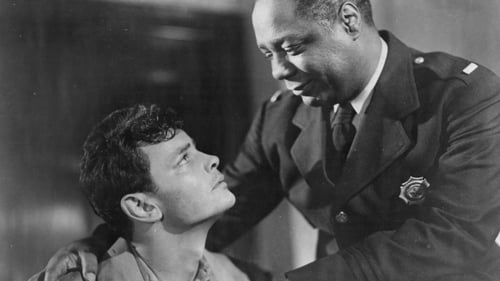
Arthur 'Art' Cooper
A light-skinned African-American family are "passing" in an all-white New England town. When the truth comes out, the more prejudiced neighbors demand their expulsion from the community.
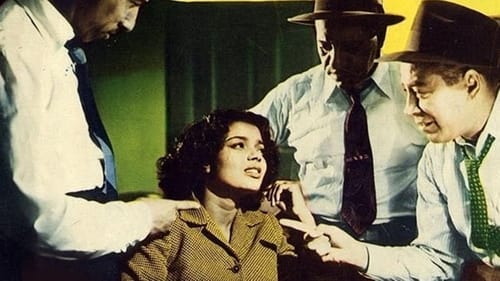
Bert Hallam
A crooked real estate tycoon tricks a trusting young woman out of her small candy store. When he is found dead, the girl is suspected of the crime.











